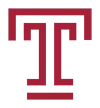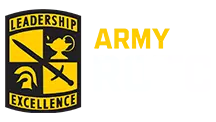Temple University Athletics
House v. NCAA Settlement - FAQ
NIL-RELATED QUESTIONS
Q: Under the proposed settlement, can a Division I institution that has opted into the settlement enter into an NIL deal with a current student-athlete?
Answer: Yes, an institution may enter into an NIL deal with a student-athlete, provided it does not extend beyond the student-athlete’s NCAA competition eligibility. NIL and other benefits cumulatively for all student-athletes cannot exceed the stated cap.
Q: Will all student-athletes receive Name, Image and Likeness (NIL) payments from their school?
Answer: It is unlikely. The specific terms of NIL opportunities will vary depending on coaching decisions, school policies and the student-athlete's individual standing.
Q: Is an institution that provides direct Name, Image and Likeness (NIL) payments to a student-athlete subject to the terms of the settlement?
Answer: Yes.
Q: Do student-athletes need to disclose all NIL agreements?
Answer: Yes. If the settlement is approved, all NIL deals, whether with a school or third-party, will need to be disclosed.
- Student-athletes must report all NIL agreements with third parties (i.e. collectives such as the Owl Elite Fund and TUFF Fund), if the involved payment(s) are greater than or equal to $600 in total.
- As has been protocol throughout, student-athletes must disclose all NIL deals through INFLCR.
Q: May student-athletes sign an NIL agreement with anyone?
Answer: Yes, however the following considerations below may apply:
- A student-athlete’s school (including any entity owned, operated or controlled by the school): The total amount of NIL money provided to all student-athletes by a school or one of its entities must not exceed the annual pool amount allowed for each school – 2025-26 academic year ($20.5 million).
- Third parties who are “associated entities or individuals” (that is, certain boosters and all collectives like the TUFF Fund): These entities and individuals may engage in NIL agreements with student-athletes only if the NIL money is paid for a valid business purpose to promote goods and services provided to the general public for profit, with payments at fair market value rates, consistent with existing NCAA rules. These assessments will be subject to challenge in a new neutral arbitration system overseen by Deloitte, who has been contracted by the NCAA.
- Third parties who are not considered “associated entities or individuals”: Agreements with other third parties are permissible and not subject to further review but must be disclosed if payments exceed $600 in total.
- Student-athletes may not enter into NIL deals with the following categories under PA state law:
- Tobacco
- Alcohol
- Gambling
- Adult entertainment
- Prescription drugs
- Controlled substances (including marijuana)
Q: Where can student-athletes go if they have questions about the Division I NIL environment?
Answer: Student-athletes can visit www.nilassist.ncaa.org for a registry of professional service providers, a dashboard outlining Division I NIL landscape and resources on NIL-related topics. Temple student-athletes can also reach out to Executive Senior Associate Athletic Director Kristy Bannon (kristy.bannon@temple.edu) to learn about Temple’s NIL programming.
Q: What can schools do to help student-athletes find NIL opportunities?
Answer: In addition to paying student-athletes for use of their NIL consistent with the terms of the settlement, schools can help find outside opportunities and provide services to support student-athletes in their search for NIL opportunities provided student-athletes retain final authority (such as, determining terms of agreement, deciding whether to accept or reject NIL agreement) over all NIL opportunities. Please note that Temple staff members may not provide advice on specific NIL deals and/or activations. Student-athletes can contact Executive Senior Associate Athletic Director Kristy Bannon (kristy.bannon@temple.edu) with specific questions.
Q: Can student-athletes seek outside representation to assist them in identifying and negotiating NIL activations?
Answer: Yes. Both NCAA rules and Pennsylvania state law permit student-athletes to seek representation related to their NIL activities. Pennsylvania state law requires all NIL agents to be registered with the Pennsylvania State Athletic Commission. The list of all registered agents is located here, and a link to the Pennsylvania Athlete Agent Law. Finally, Temple University requires all student-athletes to disclose that they have retained an agent.
Q: Do student-athlete representatives need to be practicing lawyers?
Answer: In Pennsylvania, student-athletes engaging in Name, Image, and Likeness (NIL) activities who choose to obtain professional representation must do so from individuals who meet specific legal qualifications. According to Pennsylvania's NIL law, such representation must come from either:
- An athlete agent registered under Pennsylvania's athlete agent laws, or
- An attorney admitted to practice law by a court of record in Pennsylvania.
Regarding NCAA regulations, student-athletes are permitted to hire agents or attorneys for NIL-related activities. However, they must not enter into agreements with agents for future professional sports negotiations while maintaining NCAA eligibility. Legal counsel can review proposed professional contracts, but they cannot represent the student-athlete in negotiations with professional sports organizations unless they are NCAA-certified agents.
Q: Can student-athletes sign NIL agreements with schools and outside third parties?
Answer: Yes. Student-athletes can also agree to sign exclusive NIL agreements with schools if the school offers exclusive NIL agreements. Student-athletes should work with their agent or representative and their school to learn of any school-specific requirements for NIL agreements. As a reminder, all third-party NIL agreements above $600 must be disclosed through NIL Go, a designated reporting entity.
Q: What is NIL Go?
Answer: NIL Go is the designated reporting entity to which all Division I student-athletes must report all noninstitutional NIL payments or contracts worth $600 or more.
NIL Go is a software platform created by the College Sports Commission and assisted by Deloitte to determine whether third-party NIL deals with associated entities or individuals are made with the purpose of using a student-athletes’ NIL to advance a valid business purpose and within a reasonable range of compensation. It offers a simple way for student-athletes to report third-party NIL deals to determine compliance with the new rules, allowing student-athletes to move forward with their deals confidently while protecting their eligibility.
Q: What is a third party for the purposes of reporting to NIL Go?
Answer: Any individual, corporate entity, etc. that is not the institution in which the student-athlete is enrolled (i.e., not institutional agreements) and not an entity owned or operated by an institution. NIL Go will request information from all third parties to assist with the determination of whether a third party is an associated entity or individual. The College Sports Commission, with assistance by Deloitte, will determine whether a third party meets the definition of an associated entity or individual.
A payment from a third party or payor may not be funded, directly or indirectly, by an institution and must be entirely funded by the party receiving the benefit of the student-athlete’s services, even if a separate payor acts as an intermediary and/or makes the payment on behalf of the party receiving the benefit.
Q: May a Division I institution identify or facilitate a noninstitutional NIL contract or payment (e.g., act as a marketing agent) between a student-athlete and a third party?
Answer: Yes, provided the third party is self-funding the entire payment outlined in the NIL contract.
Q: Are all Division I student-athletes required to report noninstitutional NIL contracts or payments valued at $600 or more to NIL Go?
Answer: Yes.
Q: Within how many days of execution is a student-athlete required to submit a noninstitutional NIL contract or payment to NIL Go?
Answer: A Division I student-athlete must report all written documentation to NIL Go within five business days of execution of the noninstitutional NIL contract or agreement to the payment terms.
Additionally, a student-athlete may submit a proposed NIL agreement or offer for NIL Go review before execution.
Q: Does a Division I student-athlete have to report multiple noninstitutional NIL agreements or NIL payments from the same or substantially the same third parties to NIL Go if the aggregate value is $600 or more?
Answer: Yes.
Q: Does a Division I student-athlete have to report to NIL Go a noninstitutional NIL agreement if royalties, contingencies or bonuses result in the resulting payments reaching an aggregate value of $600 or more?
Answer: Yes.
Q: When does a NIL agreement deal that reaches an aggregate value of $600 or more (e.g., multiple payments add up to $600 or more) need to be reported to NIL Go?
Answer: Within five days of payments meeting or surpassing $600 of aggregate value.
Q: What documentation is required for a student-athlete to submit a NIL contract or payment to NIL Go?
Answer: Written documentation of the NIL contract or payment terms with clear evidence of agreement to the contract or payment terms from both the student-athlete and a noninstitutional payor. Additional documentation or information may be requested if the payor is different from the third-party that entered into a noninstitutional NIL contract with the student-athlete or agreed to payment terms with the student-athlete.
Q: Other than written documentation, what else is required for a student-athlete to submit a noninstitutional NIL contract or payment to NIL Go?
Answer: Division I student-athletes must attest that (a) the NIL contract or payment as submitted is accurate and complete; (b) student-athlete obligations and noninstitutional payment details are included in the written documentation, (c) the written documentation of the actual NIL contract or payment terms has been uploaded, and (d) student-athlete obligations will be or are intended to be performed during the annual reporting period.
Q: What is the role of the noninstitutional payor in NIL Go reporting process?
Answer: For each noninstitutional NIL contract or payment, the payor shall attest to the following when a student-athlete submits a NIL contract or payment to NIL Go:
1. Whether the payor meets the definition of an associated entity or individual,
2. The accuracy and completeness of the NIL contract or payment terms as submitted by the student-athlete,
3. That the payor was not directed by an institution to enter into the NIL contract or payment terms with the student-athlete and
4. The payor self-funded the involved payment(s) to the student-athlete.
Q: What areas is the College Sports Commission responsible for enforcing?
Answer: Participating Institutions agree the designated enforcement entity (i.e., College Sports Commission) has the authority to investigate an alleged violation of NCAA rules developed as part of the settlement agreement (e.g., roster limits, provision of additional payments or benefits and noninstitutional NIL agreements) pursuant to the standards and procedures set forth in Bylaw 23 and any applicable internal operating procedures. The entity is also responsible for prescribing penalties for violation determinations and serving as the party seeking enforcement of any penalties contested through neutral arbitration.
Q: Can an enforcement matter be resolved by mutual agreement of all parties, including the Chief Executive Officer of the College Sports Commission, to the disputes or violations?
Answer: Yes.
Q: Can penalties imposed by the College Sports Commission be contested by an involved student-athlete or institution?
Answer: Yes. A student-athlete or institution may contest the decisions of the College Sports Commission for violations of the applicable rules using the neutral arbitration process.
Q: Who will preside over the neutral, independent arbitration process?
Answer: A neutral arbitrator with the authority to resolve disputes regarding any decisions of or penalties prescribed by the College Sports Commission. Arbitrator’s decisions shall be final and binding on the parties. Each neutral arbitrator will be appointed and serve terms consistent with the settlement agreement.
Q: How long will the arbitration process take?
Answer: The arbitrator has 45 days from the commencement of proceedings to reach a final, written decision. The final, written decision is final and binding to the fullest extent permitted by applicable law. In limited circumstances when the neutral arbitrator finds good cause, the schedule can exceed 45 days from commencement of proceedings to final, written decision.
Q: Will enforcement of the penalties connected to the violation(s) being contested be stayed during the arbitration process?
Answer: Yes. Penalties connected to violation(s) being contested will be paused during the arbitration process. Only the arbitrator may lift the stay of penalties if good cause is shown.
Q: Do student-athletes who elect to use the neutral arbitration process have the right to be represented by counsel of the student-athlete’s choice?
Answer: Yes.
Q: May an institution directly or indirectly pay the attorney’s fees and costs of a student-athlete that elects to use the neutral arbitration process?
Answer: Yes. In addition, an institution that directly or indirectly pays the attorney’s fees and costs of a student-athlete that elects neutral arbitration shall also pay the arbitrator’s reasonable fees and expenses.
Q: May the arbitrator order the production of documents in addition to evidence made available by the College Sports Commission during the neutral, independent arbitration?
Answer: Yes, if the additional documentation is deemed to be necessary for the fair adjudication of the dispute.
Q: May the arbitrator call witnesses during the arbitration process?
Answer: Yes. Further, each witness has the right to be represented by counsel of their choice and at their own expense.
Q: Who is responsible for the costs associated with arbitrators, including arbitrator’s reasonable fees and expenses for proceedings relating to the penalties being challenged?
Answer: An institution that directly or indirectly pays the attorney’s fees and costs of a student-athlete that elects neutral arbitration shall also pay the arbitrator’s reasonable fees and expenses.
Q: Will agreements be honored if a student-athlete decides to enter the transfer portal?
Answer: Student-athletes will be subject to the terms and conditions of the agreements they have signed with the institution.
Q: Are NIL distributions taxable income?
Answer: Yes. All student-athletes who receive NIL distributions ($600 or more) are required to file their own tax returns as outlined by state and federal law. Student-athletes will receive a 1099 form for all NIL-related income.
Q: Can international student-athletes sign NIL agreements with schools?
Answer: International student-athletes must consult with Temple Executive Senior Associate Athletic Director Kristy Bannon (kristy.bannon@temple.edu) regarding their visa status before entering NIL agreements.
SCHOLARSHIP & ROSTER-RELATED QUESTIONS
Q: Will Division I institutions be required to provide full athletics scholarships in any particular sport after final approval of the settlement?
Answer: No. All Division I athletics scholarships will be equivalency awards and institutions may provide any portion of a scholarship.
Q: Will Division I adopt legislation that establishes a roster limit for each Division I sport for institutions awarding benefits afforded by the proposed settlement?
Answer: Division I will adopt legislation that establishes potential implementation procedures and roster limits consistent with final, approved settlement.
Q: Is a student-athlete’s roster spot guaranteed?
Answer: No. Schools have the discretion to include a student-athlete on a particular team. Schools that choose to opt-in to the settlement will be bound by set roster sizes. Roster decisions will be up to the coach of the program at the school, regardless of whether a school provides additional benefits or NIL payments.
Q: Could a student-athlete lose their athletics scholarship due to the House settlement?
Answer: No. The proposed settlement does not alter any of the scholarship guarantees that became effective August 1, 2024. With the new scholarship protections, schools cannot reduce, cancel or fail to renew athletics scholarships in NCAA sports for athletics reasons (such as injury, physical or mental illness, athletic ability or performance, contribution to team success or roster management decisions). These requirements continue to apply regardless of any roster management decisions unless and until the student-athlete in question graduates or elects to transfer.
Q: When must schools be in compliance with new roster limits?
Answer: Beginning in the 2025-26 academic year, for fall sports, Participating Institutions must be at or below the roster limits no later than the end of the calendar day before the first date of competition that counts for championships selection in the relevant sport. For winter and spring sports, Participating Institutions must be at or below the roster limits no later than December 1 or the end of the calendar day before the first contest that counts for championships selection in the relevant sport, whichever is earlier. Participating Institutions should remain at or below the relevant roster limit for the remainder of the academic year or until the end of the team’s playing season, whichever is later. The team’s playing season as mentioned in this section shall include postseason competition.
A sport at a Participating Institution may exceed the Division I and conference roster limits by the number of Designated Student-Athletes included on the submitted roster.
Q: Who is a Designated Student-Athlete?
Answer: An individual who a member institution attests was or would have been removed from the institution’s 2025-26 roster due to the implementation of roster limits and was either:
1. Certified as eligible for practice or competition or otherwise placed on the institution’s squad list form for the 2024-25 academic year, prior to April 7, 2025, or
2. Recruited prior to April 7, 2025, to be, or was assured by an institutional staff member the individual would be, on the institution’s roster for the 2025-26 academic year.
Q: When do transfer portal windows open?
Answer: Transfer portal window dates are dependent upon the sport. A full list of 2024-25 transfer portal windows is available by clicking this link.
DONOR-RELATED QUESTIONS
Q: How can a donor contribute to the Competitive Excellence Funds?
Answer: Donors can give directly to the Competitive Excellence Funds by visiting this link.
Q: Are donations to the Competitive Excellence Funds tax deductible?
Answer: Yes. Gifts to the Temple Athletics Competitive Excellence Fund and Sport-Specific Competitive Excellence Funds are receipted by Temple University. Please consult your tax advisor for additional information.
Q: Will a donor receive Owl Club benefits if they donate to the Temple Athletics Competitive Excellence Fund?
Answer: Yes. Donating to the Owl Club Annual Fund and/or the Temple Athletics Competitive Excellence Fund will provide the same benefits. Additionally, gifts to these two funds within the same membership year will be added together to identify what giving level a donor is stewarded.
- For example, if a donor gives $15,000 to the Owl Club Annual Fund and $10,000 to the Temple Athletics Competitive Excellence Fund, they will be recognized as a $25,000 donor for that membership year.
Q: Will a donor receive priority points for giving to Temple Athletics Competitive Excellence Funds?
Answer: Yes. Gifts to any Temple Athletics gift fund receive priority points. Click here for more information on priority points and donor benefits.
Q: Can former and current Temple University faculty and staff members donate to the Competitive Excellence Funds?
Answer: Yes.
Q: When a donor is supporting the Owl Club versus the Competitive Excellence Fund, will there be a difference in “status”?
Answer: No. Donations to the Competitive Excellence Fund provide donors with priority points and the opportunity to receive benefits based on donor level as outlined in the Owl Club Benefits chart. Click here for more information on priority points and donor benefits.
Q: What is the difference between the Temple Owl Club Annual Fund and the Temple Athletics Competitive Excellence Fund?
Answer: Both funds directly support student-athletes and their pursuit of academic, athletic, and lifelong personal and professional excellence. However, the areas of support are different depending on which fund you donate to. Below are some examples:
- Temple Owl Club Annual Fund – Gifts support student-athlete nutrition, travel for away competition, sports medicine, TUWell mental health services, and others.
- Temple Athletics Competitive Excellence Fund – Gifts directly benefit student-athletes in the form of NIL, increased scholarships, or academic performance awards and are distributed at the discretion of the head coach.
Q: Can a donor select the recipient (student-athlete) of their contribution to the Competitive Excellence Fund?
Answer: No. However, you can donate directly to a sport program through the sport annual fund or the sport competitive excellence fund. Distributions are made at the discretion of the head coach. Click here for a direct link to give to sport-specific funds.
GENERAL QUESTIONS
Q: What has Temple University done to support Name, Image, and Likeness since July 1, 2021, when NCAA policy allowed students to capitalize on NIL opportunities?
Answer: Beginning in Spring 2021, in advance of new legislation from the NCAA, Temple Athletics launched a NIL task force that created a framework to educate student-athletes. Since then, the department has provided student-athletes opportunities to connect with companies through INFLCR and NBC Sports Athlete Direct, directly with EA Sports for select sports, worked on co-branded merchandise through NIL Store, and has bolstered the infrastructure surrounding NIL efforts. The department has also worked to educated student-athletes on personal brand development. There is a required 3 credit hour student-athlete branding course for all first-year student-athletes in partnership with the School of Tourism & Hospitality Management that includes social media foundation, and influencer techniques. Over 230+ student-athletes have successfully completed the course to date.
Q: What changed to allow Temple to directly implement a fundraising strategy for NIL?
Answer: The pending NCAA v. House settlement will permit institutions to directly fundraise and enter into NIL agreements with student-athletes. Previously, universities were restricted in engaging with NIL opportunities for their athletes. The NCAA prohibited schools from directly organizing or facilitating NIL deals for student-athletes.
Q: How has the University supported the efforts of the athletic department in preparing for the changes in legislation, particularly fundraising directly for NIL?
Answer: University leadership has been extremely helpful in supporting the department’s mission and values. With that at the center of every decision made, Temple Athletics and the Office of Institutional Advancement announced the launch of Competitive Excellence Funds that will directly support student-athletes. This is the first step in a comprehensive strategy that will ensure our student-athletes and programs are set up for success.
Q: What happens if the settlement is denied?
Answer: If the settlement is denied, the case will remain unresolved, and litigation will continue. Temple University will work directly with the American Athletic Conference to move forward as a conference, while the Autonomy Four (Power Four) conferences are expected to continue operations as planned. Temple will still need to comply with NCAA rules, which may limit NIL (Name, Image, and Likeness) activities for student-athletes. The parties involved in the lawsuit—the NCAA and the plaintiffs—will need to continue working toward a resolution. This could lead to a trial, additional legal proceedings, or renewed settlement negotiations. In the meantime, the current NIL rules and restrictions governing student-athletes will remain in effect until an alternative resolution is reached.
- For additional questions regarding the House settlement and new NCAA legislation, contact Kristy Bannon, Executive Senior Associate Athletic Director for Compliance at kristy.bannon@temple.edu.
- For additional questions about supporting Temple student-athletes, please reach out to the Temple Owl Club at (215) 204-2582, owlclub@temple.edu, or visit https://www.templeowlclub.com/elevate-the-owls/












